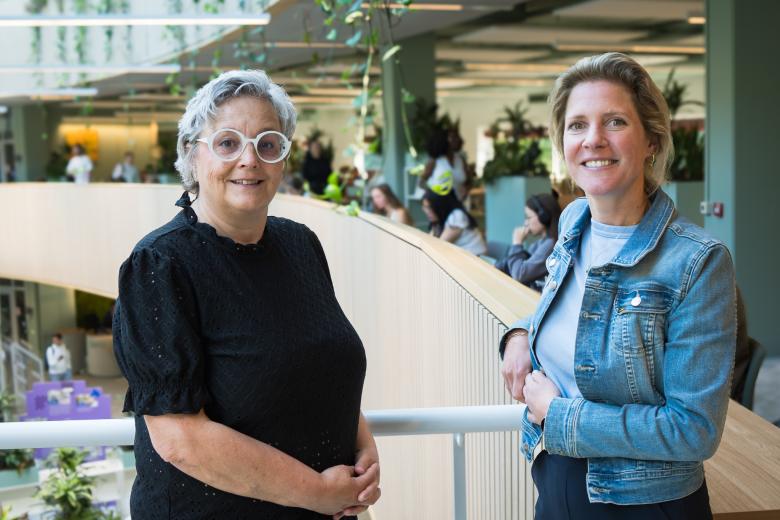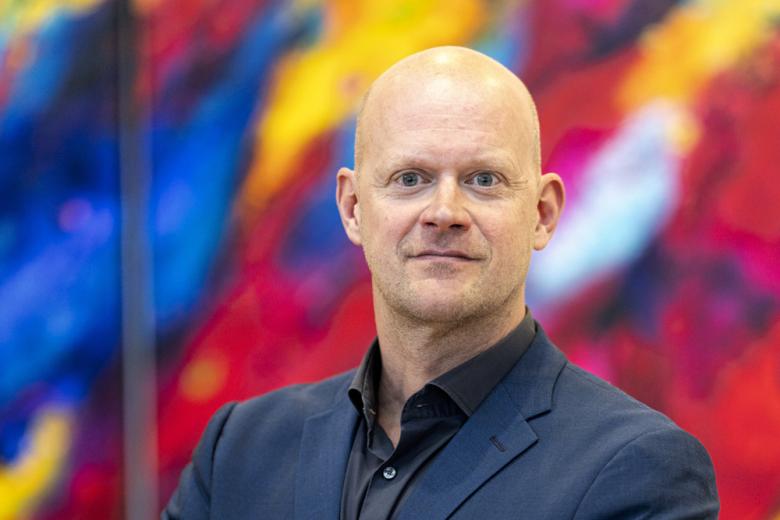Less cooling, faster recovery? Elham Bidar investigates organ blood flow in heart surgery
More than 3.000 people work at the Faculty of Health, Medicine and Life Sciences. Some are focused on reducing waste in the operating room, others work on preventing dementia. In 'Nice to meet you', these individuals introduce themselves and share their work within FHML.
During complex heart surgery, the patient’s body is typically cooled and blood flow to organs is temporarily stopped. Cooling protects the organs in this setting, but also causes side effects and results in a long recovery process. Together with CARIM and Maastricht UMC+, Elham Bidar is investigating a way to reduce cooling during surgery while avoiding the need to temporarily stop the blood flow, which leads to faster recovery in patients.
Elham Bidar studied medicine, did his PhD research, and trained as a heart surgeon, all in Maastricht. He has been working as a heart-lung surgeon for five years, primarily focusing on aortic surgeries. Furthermore, he is conducting research together with CARIM. “We developed a translational research infrastructure, in which clinicians and basic scientists work together. This leads to many new research projects,” he says. “Within CARIM, we have an important collaboration in the field of aortic surgery. This includes the Department of Cardiothoracic Surgery (CTC), biochemistry with Leon Schurgers and biomedical technology with Koen Reesink. Additionally, there are extensive collaborations with the departments of fysiology, electrofysiology, cardiology and radiology. Engineers, biochemists, and clinicians work together on a variety of clinically relevant topics. Working with people from other disciplines is inspiring, educational, and highly important because it allows for a holistic approach toward patients and diseases.”
Cooling
A complex heart surgery is typically performed using a heart-lung machine. “This machine takes over the function of the heart and lungs, allowing us to temporarily stop the heart and perform surgery. The machine also cools the blood if necessary, and thus the body,” Elham explains. “Cooling the body has traditionally been the primary method to protect organs. The normal body temperature is 37.5 degrees Celsius. When you cool the body to, for example, 18 degrees, the organs use less energy and oxygen and temporarily require less blood. Then, the surgeon can temporarily stop the blood circulation. This gives time to, for instance, repair a blood vessel, without being hindered by blood flow.”
Side effects
Due to new technological developments, there are more possibilities to avoid cooling the body as much and having to stop the blood circulation, as these procedures come with side effects. “Cooling can cause the cells on the surface of blood vessels to lose their ability to function properly,” Elham explains. “As a result, the body needs a long time to recover, especially when the circulation is temporarily stopped. It is comparable to a person who has drowned in cold water and whose body needs to be warmed up again. After complex heart surgeries including these procedures, patients sometimes spend one or two weeks in the intensive care unit and often remain in the hospital for three to four weeks. On one hand, cooling protects the organs, but on the other hand, it places a great strain on the patient’s body. As a surgeon, you obviously want to avoid this or at least reduce it.”
Faster recovery
Together with other researchers, Elham is investigating how they can reduce cooling during complex heart surgery and minimise the time patients need to spend on the heart-lung machine. “Together with our perfusionists, we developed a new strategy for these surgeries,” he says. “In this approach, we optimise the blood flow to organs, so that we no longer need to cool as much. We already see that patients recover much faster from the surgery and have a lower mortality rate. Currently, we are investigating how much blood each organ group needs at a specific temperature. For example, if the body is cooled from 37.5 to 30 degrees instead of to 18 degrees, how much blood flow is required for the kidneys to prevent damage? We are also looking for biomarkers that can quickly indicate organ damage. This way, we can immediately detect if an organ is at risk and adapt the blood flow accordingly.”
What research outcomes does Elham hope for? “I hope that patients recover more quickly, that the surgical load remains as small as possible, and that the benefits of these procedures outweigh the risks.”
Want to learn more about this research?
Elham Bidar will discuss this topic at the annual CARIM symposium on November 27, 2024. Are you not able to be there? Watch the livestream.
Text: Joëlle van Wissen
Also read
-
Randwyck Library and the river of knowledge
Monique Notermans and Meike Kerkhofs-Welkenhuizen witnessed the vision behind a modern library come to life.

-
Is the risk of cancer the same for everyone?
Valery Lemmens (GROW) conducts research on cancer, prevention, and how society is designed for making unhealthy choices.

-
Most prestigious European grant to two UM scientists
Two Maastricht University professors are to receive the most prestigious European research grant for individual researchers: an ERC Advanced Grant, worth over €2.5 million. They are Lorenzo Moroni (MERLN) and Alexander Sack (FPN).
